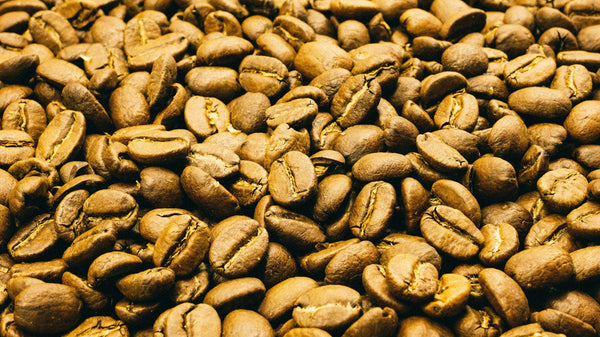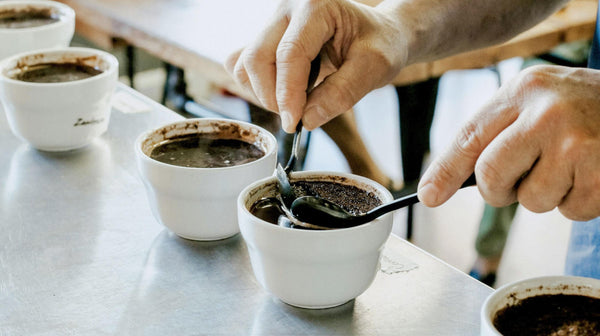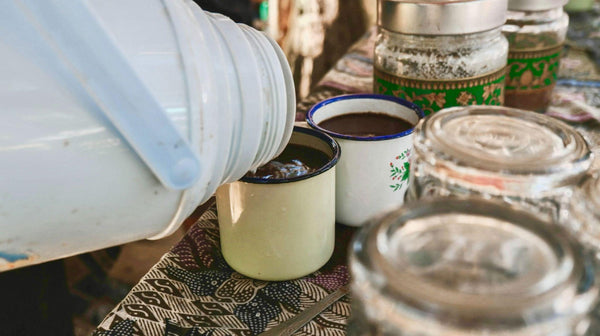Challenges and opportunities for the Flores Island coffee industry

In Flores, the potential exists to help create a world class speciality coffee origin, resulting in increased farm incomes for the estimated 75,000 families currently involved in coffee production.
The island of Flores has produced significant volumes of coffee for well over a century. Coffee is a smallholder crop in Flores, grown within a subsistence-based agricultural system, and is the principal source of farm income in the Districts of Manggarai and Ngada. The natural environment in these Districts, with high altitudes, seasonal rainfall and extremely fertile soils, is well-suited to coffee production.
Coffee production begins with Robusta grown on the lower slopes from 500m in altitude, then merges with Arabica in the middle altitudes of 800 to 1200m, and is then dominated by Arabica up to 1800m.
Stakeholders suggest that up to 80% of farm families in the area grow some coffee, although it is probably little more than a backyard crop for many. Certainly, however, average holdings of coffee in Flores are small, indicating the general lack of focus on intensive coffee production within the farm system. average yields from the productive areas are 376 kg GBE1/ha (Robusta) and 301 kg GBE/ha (Arabica) which seems to accurately reflect the condition of farms observed.
There are a number of clear strengths and opportunities which suggest that Flores could develop into a specialty Arabica coffee origin, whilst further building the reputation of its Robusta. In addition to the ideal coffee-growing environment of Flores, the established coffee-growing tradition within the communities provides a good basis on which to develop a high value industry.
Arabica and Robusta coffee are grown passively in Flores with virtually no chemical fertilisers or pesticides. Both crops are mostly unpruned and widely intercropped, sometimes with Arabica and Robusta grown together.
There appear to be no quality-related price incentives for the various types of coffee processing performed at farm level. Very few traders have established direct relationships with farmers beyond the traditional ijon system of tied credit, and most to date, have little motivation to improve quality at the farm level.
The industry has no strategic plan and it will be difficult for any single small intervention to transform the industry without major investment.
The farm system is highly risk averse, such that changes to farm-level production and processing methods must be clearly demonstrable as being beneficial to farmers.
Farmers currently lack information and the means for effective knowledge transfer is limited.
Intervention can contribute to a quality-oriented shift in the Flores coffee industry. If technical issues can be resolved, an industry strategy formulated, and interaction between the various stakeholders supported, the scene is set for larger scale inputs to continue the development of the industry.

ICCRI researchers believe that the dominant Arabica variety in Flores is S795, with localised concentrations of Typica, Catimor and Hybrido de Timor. A high concentration of an old local Arabica variety called ‘Juria’ was observed, which a much larger form than normal Arabica.
It is also possible that the fertile and mountainous environment of Flores contains unique microclimates, where interesting combinations of environment and varieties create possibilities for specialised market development.
The harvest seasons of Arabica and Robusta overlap, with Arabica harvested from May to August and Robusta harvested from July to September.

There is now growing interest in understanding the role processing plays in the development of coffee character, as the speciality coffee industry has begun to seek out unique and specialised flavours, and to demand more reliability and consistency in quality. It is now realised that a range of characters and flavours are possible for a single origin if different primary processing methods are used.
Most coffee origins are linked to a defined processing method which has evolved over time and through the influence of factors such as colonial industry, local culture, climate, labour, water availability, and market signals. Flores, however, currently does not have a clearly-defined, characteristic processing method.
The Flores Island coffee industry, however, possesses a number of favourable conditions which would support the establishment of ‘Flores’ as a recognised origin within the international specialty coffee sector. If managed appropriately, quality improvement and integration into speciality marketing chains would significantly increase the rural incomes of an estimated 75,000 farm families in Flores.
Source:
MARSH, NIELSON, MARWADI, Australian Center for International Agricultural Research (ACIAR) 2007
Edited by:
Haigan Murray 01 Nov 2023
All images:
Flores Island Coffee (PT. Pintu Air Kopi Flores)




